A sudden case of mid-summer sore throat means that when Irish Country Living knocks on the door of Gordon and Sharon Greene’s farmhouse in Co Offaly, we can hardly croak “hello”.
Not the most helpful way to start an interview, it has to be said.
“Try this,” says Sharon, offering us a shot of sparkling water with homemade rowanberry shrub, a traditional drinking vinegar known as “singer’s shrub” in old Ireland.
“We use it for sore throats in our house,” she explains – and as a mother-of-five you sense that Sharon has a solution for every cough or complaint.
Indeed, the cupboards of the Greene family kitchen are full of concoctions – rosehip syrup, honeysuckle shrub, meadowsweet pot – foraged from the fields and hedgerows of their 50-acre farm and preserved with love and care.
And thanks to their business, The Wild Irish Foragers & Preservers – which won the All-Ireland Farmers’ Market competition last weekend – they are now sharing their twist on tradition with a new generation.
Sharon and Gordon live in Shinrone with their children Norton, Jordan, Jane, Stuart and Emily, but forage at Millhouse Farm in nearby Clonisk, which has been in their family for five generations and where they also raise beef.
Starting the Wild Irish Foragers, however, was something of an accident.
“We didn’t sit down and plan this,” says Sharon, who only started making syrups seven years ago when Emily asked her what a rosehip was while picking blackberries.
“My grandmother reared us on rosehip syrup,” says Sharon. “I just presumed the child would know because we knew.”
Sharon started experimenting with traditional recipes, but the first hint that they might have commercial potential was when she went to a local farmers’ market and sold 20 bottles of syrup. Gingerly, she and Gordon decided to take the next step and go to the Wild & Slow Festival in Brooklodge, Co Wicklow, in 2012.
“We hadn’t a clue,” admits Gordon. “I had never been behind a market stall and I was dreading it ... and the first sale we made was to John McKenna.”
(Indeed, the author of the McKenna Guides has been one of their most passionate advocates ever since, describing their business as a “precious venture”.)
It was the spring of 2013, however, that The Wild Irish Foragers really blossomed, with their first full harvest.
Gordon is the forager and his season starts with gorse, followed by dandelions, elderflower, honeysuckle, clover and meadowsweet, while the autumn bounty ranges from blackberries, rosehips and elderberries to haws, sloes, damsons and crab apples.
His passion for the land is quiet but infectious, even when talking about dandelions – a flower that would have most of us revving up the lawnmower.
“They’re such intelligent little things,” says Gordon, who only picks when the sun is up and, even then, just a bucket at a time, because once the petals starts to close, it makes them more difficult to pluck by hand.
“And I will sit there for four hours, non-stop,” he says.
(In fact, the process is so delicate that if any piece of greenery from the dandelion gets in with the petals, it will turn the batch bitter.)
Then it’s over to Sharon, who produces their craft range on their four-ring hob. Rosehip syrup is high in vitamin C and was traditionally used by people suffering from arthritis due to its anti-inflammatory properties, elderberry syrup is said to boost the immune system, nettle syrup is rich in iron, while gorse flower syrup in olden days was known as a woman’s “emotional balancer”.
“It helps with the rollercoaster,” smiles Sharon.
The range also includes pontack, a 17th century elderberry recipe used to accompany game meats, jellies and shrubs, inspired by the drinking vinegars that originally came to Ireland from the Middle East.
“Farmers’ wives used to make them for the men working in the fields, they were thirst quenchers,” explains Sharon. “But the tradition of making them left Ireland sometime around the Famine.”
Made with organic apple cider vinegar and cane sugar, the shrubs include wild blackberry, clover petal, honeysuckle and more. Apart from their health properties, they have a myriad of uses, whether drizzled over ice cream, mixed with a cocktail, added to salad dressing, used to marinate meat or fish or diluted with sparkling water to create “shots” to accompany cheese.
“The wild blackberry shrub and the Mossfield Slieve Bloom salty cheddar are amazing together, while the honeysuckle is particularly good for marinating fish,” lists Sharon. “They’re an old concept, but they’re a new product.”
It’s also a labour of love. To make 12 pots of dandelion honey, for example, the Greenes need to pick and pluck 365 flowers; or one for every day of the year according to the recipe they follow. They have not borrowed any money to start their business, instead re-investing any profits into bottles, labels and freezers. Next on the shopping list is another hob.
However, their careful, considered approach is paying off – not just with stockists like The Good Food Shop in the English Market or Crinkle Stores in Dingle, but also with customers who meet them at markets and continue to purchase by post.
(Indeed, when we visited, Sharon had just posted 12 bottles of elderberry syrup to a man who puts a teaspoon in his Actimel every morning to ward off coughs and colds.)
They have also won a number of accolades, including Blás na hÉireann awards and the overall gold medal for their dandelion petal preserve at last year’s Listowel Food Fair.
Long term, Gordon and Sharon have a vision of running foraging walks and perhaps eventually opening a farm shop or rustic accommodation to provide a holistic visitor experience. They see themselves as caretakers of the land rather than cultivators, by simply allowing nature to take its course and foraging respectfully.
“And if we can make a living off 50 acres, there’s a great sense of satisfaction in that,” says Gordon, who admits they are still surprised by the success of their venture.
“We didn’t go and learn about this anywhere. It’s just that we knew it. It’s there. It seems so obvious.”
It might not be agriculture as we know it, but for Sharon and Gordon Green, this is farming in its purest form.
“We are kind of the odd ones out,” smiles Sharon. “But we’re happy to be the odd ones out.”
A sudden case of mid-summer sore throat means that when Irish Country Living knocks on the door of Gordon and Sharon Greene’s farmhouse in Co Offaly, we can hardly croak “hello”.
Not the most helpful way to start an interview, it has to be said.
“Try this,” says Sharon, offering us a shot of sparkling water with homemade rowanberry shrub, a traditional drinking vinegar known as “singer’s shrub” in old Ireland.
“We use it for sore throats in our house,” she explains – and as a mother-of-five you sense that Sharon has a solution for every cough or complaint.
Indeed, the cupboards of the Greene family kitchen are full of concoctions – rosehip syrup, honeysuckle shrub, meadowsweet pot – foraged from the fields and hedgerows of their 50-acre farm and preserved with love and care.
And thanks to their business, The Wild Irish Foragers & Preservers – which won the All-Ireland Farmers’ Market competition last weekend – they are now sharing their twist on tradition with a new generation.
Sharon and Gordon live in Shinrone with their children Norton, Jordan, Jane, Stuart and Emily, but forage at Millhouse Farm in nearby Clonisk, which has been in their family for five generations and where they also raise beef.
Starting the Wild Irish Foragers, however, was something of an accident.
“We didn’t sit down and plan this,” says Sharon, who only started making syrups seven years ago when Emily asked her what a rosehip was while picking blackberries.
“My grandmother reared us on rosehip syrup,” says Sharon. “I just presumed the child would know because we knew.”
Sharon started experimenting with traditional recipes, but the first hint that they might have commercial potential was when she went to a local farmers’ market and sold 20 bottles of syrup. Gingerly, she and Gordon decided to take the next step and go to the Wild & Slow Festival in Brooklodge, Co Wicklow, in 2012.
“We hadn’t a clue,” admits Gordon. “I had never been behind a market stall and I was dreading it ... and the first sale we made was to John McKenna.”
(Indeed, the author of the McKenna Guides has been one of their most passionate advocates ever since, describing their business as a “precious venture”.)
It was the spring of 2013, however, that The Wild Irish Foragers really blossomed, with their first full harvest.
Gordon is the forager and his season starts with gorse, followed by dandelions, elderflower, honeysuckle, clover and meadowsweet, while the autumn bounty ranges from blackberries, rosehips and elderberries to haws, sloes, damsons and crab apples.
His passion for the land is quiet but infectious, even when talking about dandelions – a flower that would have most of us revving up the lawnmower.
“They’re such intelligent little things,” says Gordon, who only picks when the sun is up and, even then, just a bucket at a time, because once the petals starts to close, it makes them more difficult to pluck by hand.
“And I will sit there for four hours, non-stop,” he says.
(In fact, the process is so delicate that if any piece of greenery from the dandelion gets in with the petals, it will turn the batch bitter.)
Then it’s over to Sharon, who produces their craft range on their four-ring hob. Rosehip syrup is high in vitamin C and was traditionally used by people suffering from arthritis due to its anti-inflammatory properties, elderberry syrup is said to boost the immune system, nettle syrup is rich in iron, while gorse flower syrup in olden days was known as a woman’s “emotional balancer”.
“It helps with the rollercoaster,” smiles Sharon.
The range also includes pontack, a 17th century elderberry recipe used to accompany game meats, jellies and shrubs, inspired by the drinking vinegars that originally came to Ireland from the Middle East.
“Farmers’ wives used to make them for the men working in the fields, they were thirst quenchers,” explains Sharon. “But the tradition of making them left Ireland sometime around the Famine.”
Made with organic apple cider vinegar and cane sugar, the shrubs include wild blackberry, clover petal, honeysuckle and more. Apart from their health properties, they have a myriad of uses, whether drizzled over ice cream, mixed with a cocktail, added to salad dressing, used to marinate meat or fish or diluted with sparkling water to create “shots” to accompany cheese.
“The wild blackberry shrub and the Mossfield Slieve Bloom salty cheddar are amazing together, while the honeysuckle is particularly good for marinating fish,” lists Sharon. “They’re an old concept, but they’re a new product.”
It’s also a labour of love. To make 12 pots of dandelion honey, for example, the Greenes need to pick and pluck 365 flowers; or one for every day of the year according to the recipe they follow. They have not borrowed any money to start their business, instead re-investing any profits into bottles, labels and freezers. Next on the shopping list is another hob.
However, their careful, considered approach is paying off – not just with stockists like The Good Food Shop in the English Market or Crinkle Stores in Dingle, but also with customers who meet them at markets and continue to purchase by post.
(Indeed, when we visited, Sharon had just posted 12 bottles of elderberry syrup to a man who puts a teaspoon in his Actimel every morning to ward off coughs and colds.)
They have also won a number of accolades, including Blás na hÉireann awards and the overall gold medal for their dandelion petal preserve at last year’s Listowel Food Fair.
Long term, Gordon and Sharon have a vision of running foraging walks and perhaps eventually opening a farm shop or rustic accommodation to provide a holistic visitor experience. They see themselves as caretakers of the land rather than cultivators, by simply allowing nature to take its course and foraging respectfully.
“And if we can make a living off 50 acres, there’s a great sense of satisfaction in that,” says Gordon, who admits they are still surprised by the success of their venture.
“We didn’t go and learn about this anywhere. It’s just that we knew it. It’s there. It seems so obvious.”
It might not be agriculture as we know it, but for Sharon and Gordon Green, this is farming in its purest form.
“We are kind of the odd ones out,” smiles Sharon. “But we’re happy to be the odd ones out.”





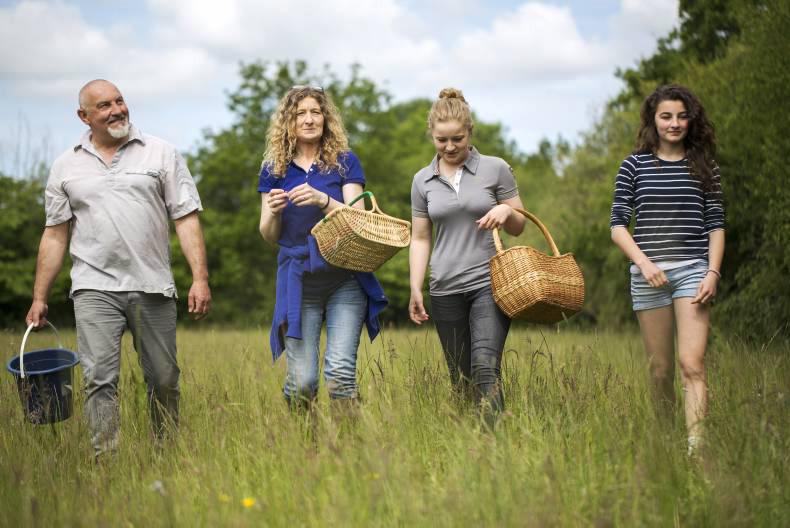
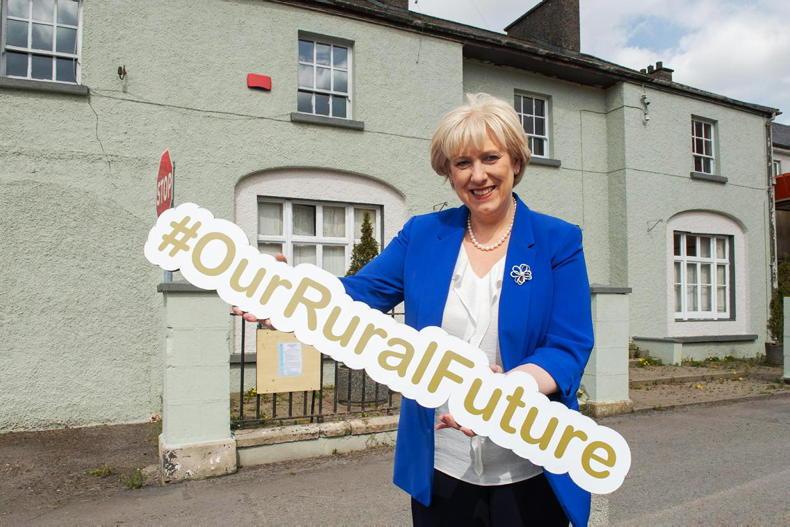
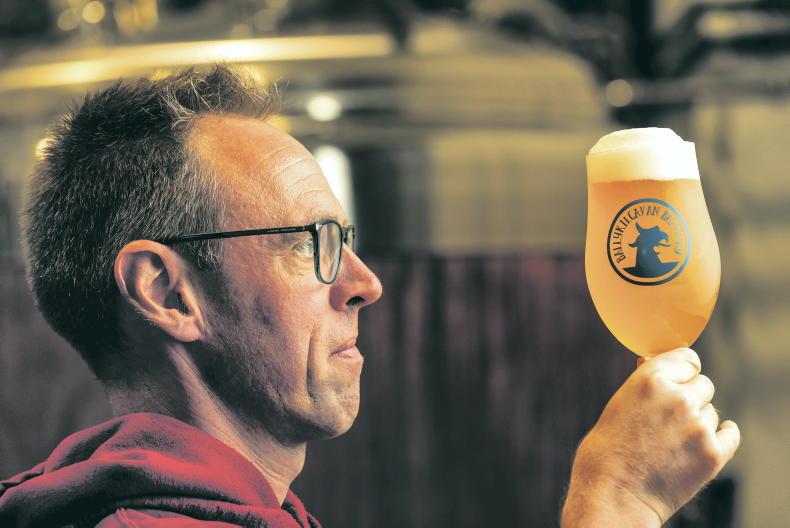
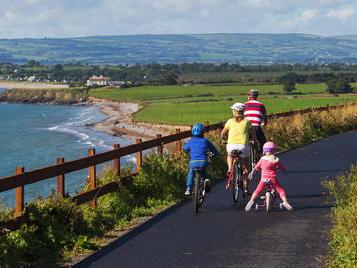
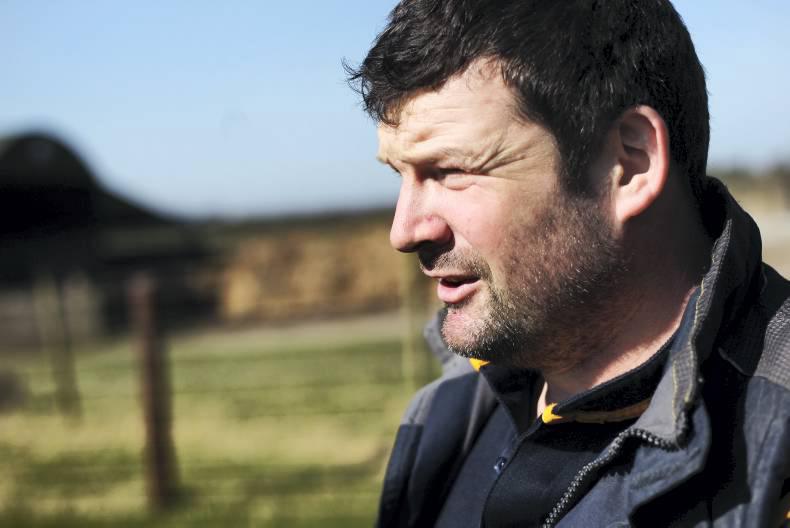
SHARING OPTIONS